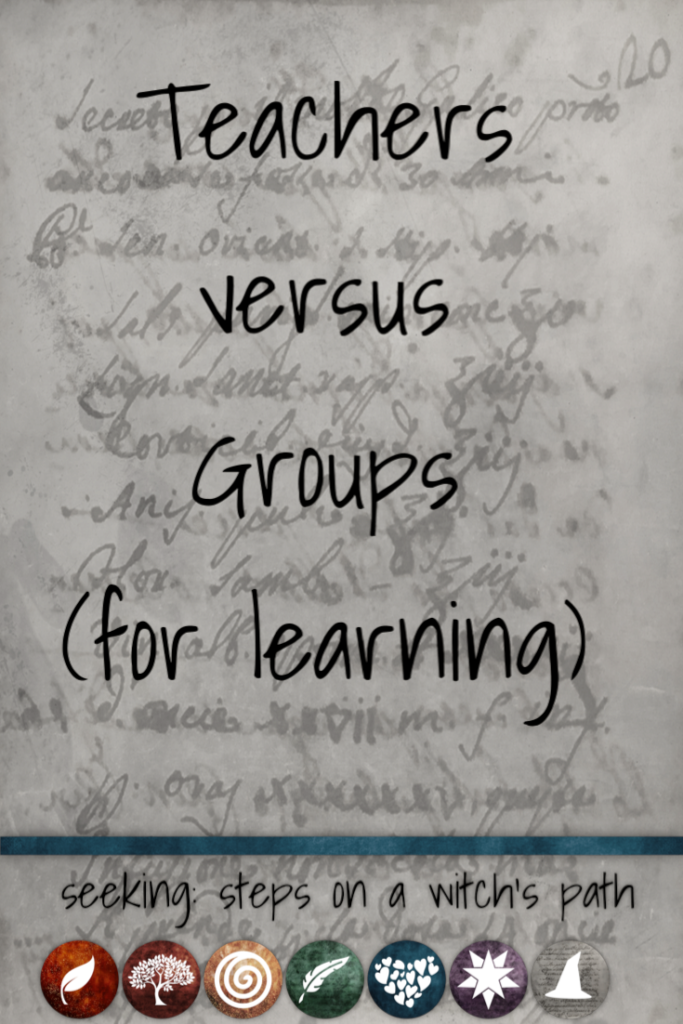People sometimes want to find a teacher, rather than a group. For various reasons – some of which you might not expect – this is not always as simple as the other way round. (Even though groups take more coordination.)
(Note that the following mostly don’t apply to situations where you have a primary teacher or mentor, but are also working and learning in a group context, as is common in many groups.)

Some reasons why:
There are just plain fewer people wanting to teach one on one.
Practical issue. The reasons why are many, some of which I explore below, but the reality is that most competent teachers don’t take a lot of one-on-one students.
Group work helps buffer some kinds of patterns.
In one on one teaching, it can be really easy to fall into particular kinds of patterns – perhaps idealising the teacher, perhaps tangling friendship and teaching too quickly, perhaps thinking that the teacher’s choices are the only way to do those things.
Some of these patterns can be hard to get away from. Working with a group helps manage them, because you’ll have people in different stages of interaction.
Some traditions have practices that work best with (or require) multiple people,
That means that people in these traditions will tend to either already be working in a group, or thinking about how to build that as an option. Working with a student who’s not interested in that may well be a lower priority.
Teachers may already have commitments to existing groups.
If someone’s been teaching for a while, chances are they already have some existing connections and commitments. They’ll want to make sure that any new commitments (like a new student) fit well with what they’re already doing.
In general, if they’re running a group, running another set of classes and occasional rituals for a single student is probably not in the calendar.
One on one teaching is a different dynamic than group discussion.
Some paths work better one way or the other. As a student, having other people there can also be a way to learn things that you’d never have thought to ask, or to learn from people with different kinds of experience.
I generally prefer small group discussions, because when they go well, they go to amazing new places I’d never have considered. My ideal is to do a Dedicant year with 2-3 students who can bounce ideas off of each other and learn from each other’s questions and interests.
One on one work can be hard on the teacher.
For people working in initiatory paths or other paths with a fair bit of learning before full participation, there’s generally a huge drop-out rate. This is often with good reason – people have things come up they need to deal with, they decide a path isn’t the right fit, they need to take a break and work through some changes in their life.
However, it’s really hard, as a teacher, to invest emotionally in teaching someone and have them disappear. When you’re working with a group, one person disappearing is balanced by the people who are still there. When you’re working one-on-one, that’s not an option.
One big caution
Sometimes teachers want to teach you by yourself because it’s a lot easier to manipulate someone one on one.
While many Pagans are wonderful people, like all groups of humans, we have our share of predators and abusers. We also have our share of people who get in over their heads, and drag you along with them. When you work with multiple people (whether that’s multiple teachers in a group, or multiple students), it’s a lot more likely someone will catch problems before they get too huge.

Last edited January 14, 2011. Reformatted November 2020.



